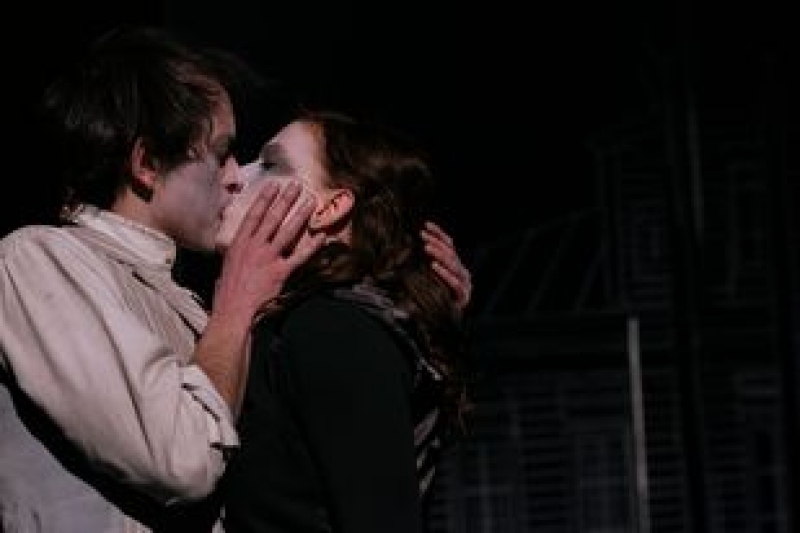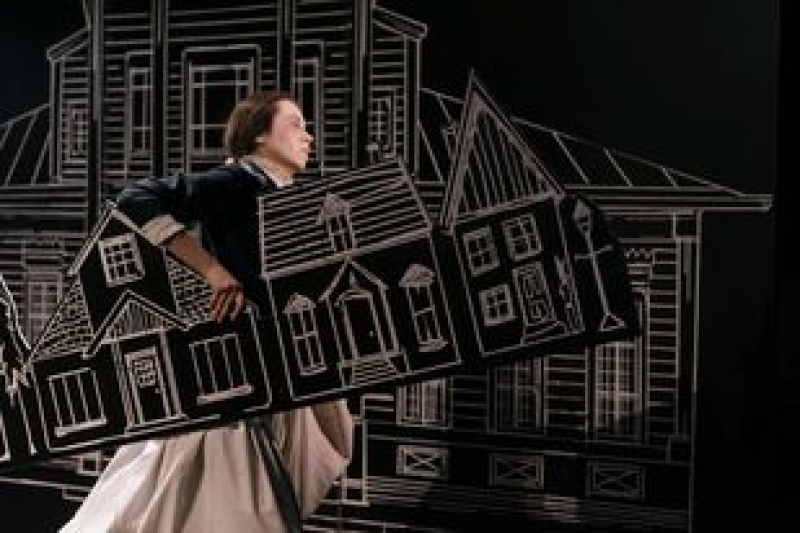PLATONoff
A.P. Chekhov
PLATONoff
A.P. Chekhov
90 min.
Director: Margarita Mladenova, Ivan Dobchev
Scenography: Venelin Shurelov
Costumes: Elica Georgieva, Suzi Radichkova
Music: Hristo Namliev
Performers: Alexandar Tonev, Rashko Mladenov, Antonio Dimitrievski, Bilyana Georgieva, Vesela Manolova, Dobromir Cvetkov, Ivan Nikolov, Katalin Starejshinska, Kristian Stoichkov, Lora Tencheva, Marin Djishev, Neno Kojnarski, Paola Maravilya, Preslav Turpanov, Stefani Andonova, Yana Bobeva
Scenography: Venelin Shurelov
Costumes: Elica Georgieva, Suzi Radichkova
Music: Hristo Namliev
Performers: Alexandar Tonev, Rashko Mladenov, Antonio Dimitrievski, Bilyana Georgieva, Vesela Manolova, Dobromir Cvetkov, Ivan Nikolov, Katalin Starejshinska, Kristian Stoichkov, Lora Tencheva, Marin Djishev, Neno Kojnarski, Paola Maravilya, Preslav Turpanov, Stefani Andonova, Yana Bobeva
PLATONoff
Author : A.P. Chekhov
Directors : Margarita Mladenova and Ivan Dobchev
Scenography : Venelin Shurelov
Costumes : Elitsa Gueorguieva and Susie Radichkova
Music : Hristo Namliev
Starring : Alexandre Tonev, Rashko Mladenov, Antonio Dimitrievski,
Bilyana Gueorguieva, Vessela Manolova, Dobromir Tsvetkov, Ivan
Nikolov, Katalin Stareyshinska, Kristian Stoichkov, Laura Tencheva,
Marin Dzhishev, Neno Koynarski, Paola Maravilia, Preslav Tarpanov,
Stéphanie Andonova, Yana Gueorguieva
FROM PLATO TO DANTE
For the twenty-year-old man who has an intuition of purpose and a
project for his life to become Byron or Christopher Columbus - ideas
precede things, he is a Platonist by inspiration. Why, however, just a
few years later, our future hero is already an anti-hero, the things of
life press him, temptations displace ideas and he falls into
fatherlessness, godlessness, powerlessness, meaninglessness. He
shrinks, his absolute Self disappears, his "image and likeness" are
depersonalized, and from being a creator, this "indefinite" man
becomes a destroyer.
This typical phenomenon /Platonov or Ivanov, or Andrey, or Treplev,
or Uncle Vanya/ has been the target of Chekhov's writing since the
first big "draft" of all his subsequent plays, of which we are looking
for a living theatrical expression. The disappearing man - the great
theme, the great pain of Anton Pavlovich, which we confess as ours
today.
Prof. Margarita Mladenova
This wording reflects our insight into the pathos that drove the 18-
year-old Antosha Chekhov to write those 220 pages titled
Fatherlessness.
The heroes of this Godlessness throw themselves among the remains
of their bequeathed tablets that built the human in Man, from his
expulsion from Paradise, through the Reformations, the Revolutions,
the Nietzschean killings of God, the ghosts of Communism and
Anarchism, to today's liberal democracy writhing in the agony of
Permissiveness . The 18-year-old Chekhov seems to have experienced
the vision of John on the island of Patmos and saw us burning.
Our performance has the audacity to resurrect this Chekhov,
forgotten and over the years swept under the postulates of the
psychological realism of Stanislavski and Nemirovich-Danchenko.
Much later, in the Scwarzwald sanatorium/Black Forest/ in the resort
town of Badenweiler, the already 44-year-old Chekhov, broken by his
long-standing tuberculosis, will ask for a glass of champagne and with
his inherent black sense of humor will say his last toast: “Ich sterbe!”.
His dead body arrives in Moscow in a frozen oyster wagon... the dark
comedy continues.
Prof. Ivan Dobchev
Author : A.P. Chekhov
Directors : Margarita Mladenova and Ivan Dobchev
Scenography : Venelin Shurelov
Costumes : Elitsa Gueorguieva and Susie Radichkova
Music : Hristo Namliev
Starring : Alexandre Tonev, Rashko Mladenov, Antonio Dimitrievski,
Bilyana Gueorguieva, Vessela Manolova, Dobromir Tsvetkov, Ivan
Nikolov, Katalin Stareyshinska, Kristian Stoichkov, Laura Tencheva,
Marin Dzhishev, Neno Koynarski, Paola Maravilia, Preslav Tarpanov,
Stéphanie Andonova, Yana Gueorguieva
FROM PLATO TO DANTE
For the twenty-year-old man who has an intuition of purpose and a
project for his life to become Byron or Christopher Columbus - ideas
precede things, he is a Platonist by inspiration. Why, however, just a
few years later, our future hero is already an anti-hero, the things of
life press him, temptations displace ideas and he falls into
fatherlessness, godlessness, powerlessness, meaninglessness. He
shrinks, his absolute Self disappears, his "image and likeness" are
depersonalized, and from being a creator, this "indefinite" man
becomes a destroyer.
This typical phenomenon /Platonov or Ivanov, or Andrey, or Treplev,
or Uncle Vanya/ has been the target of Chekhov's writing since the
first big "draft" of all his subsequent plays, of which we are looking
for a living theatrical expression. The disappearing man - the great
theme, the great pain of Anton Pavlovich, which we confess as ours
today.
Prof. Margarita Mladenova
This wording reflects our insight into the pathos that drove the 18-
year-old Antosha Chekhov to write those 220 pages titled
Fatherlessness.
The heroes of this Godlessness throw themselves among the remains
of their bequeathed tablets that built the human in Man, from his
expulsion from Paradise, through the Reformations, the Revolutions,
the Nietzschean killings of God, the ghosts of Communism and
Anarchism, to today's liberal democracy writhing in the agony of
Permissiveness . The 18-year-old Chekhov seems to have experienced
the vision of John on the island of Patmos and saw us burning.
Our performance has the audacity to resurrect this Chekhov,
forgotten and over the years swept under the postulates of the
psychological realism of Stanislavski and Nemirovich-Danchenko.
Much later, in the Scwarzwald sanatorium/Black Forest/ in the resort
town of Badenweiler, the already 44-year-old Chekhov, broken by his
long-standing tuberculosis, will ask for a glass of champagne and with
his inherent black sense of humor will say his last toast: “Ich sterbe!”.
His dead body arrives in Moscow in a frozen oyster wagon... the dark
comedy continues.
Prof. Ivan Dobchev
buy ticket
16 , 19.00 (Main hall)
buy ticket
16 , 19.00 (Main hall)
02 / 943 38 90
14.00 - 19.00 ч.
почивен ден - неделя
14.00 - 19.00 ч.
почивен ден - неделя






